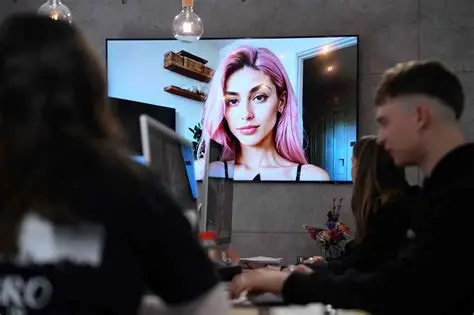Guess, the Californian fashion powerhouse, has unveiled its newest global campaign star but she isn’t real. Vivi, a striking, digitally generated supermodel, now graces the glossy pages of Vogue and Harper’s Bazaar, raising industry-wide questions about the future of beauty, creativity, and authenticity in fashion.
Created by London-based AI marketing agency Seraphinne Vallora, Vivi embodies what co-founder Valentina Gonzalez calls the “DNA of Guess”: feminine, sensual, and goddess-like. Alongside Vivi is Anastasia, another AI-generated model, both designed to replicate the glamour that has defined Guess campaigns for decades.
While Seraphinne Vallora insists their software can generate models of any ethnicity, size, or weight, co-founder Andreea Petrescu admits the greatest online traction comes from models that fit conventional beauty ideals. “Companies need content fast. It’s hard to run shoots, especially on location with multiple models. AI provides speed and cost efficiency,” Petrescu told Amnewsworld.
The agency argues that AI cuts expenses by reducing the need for travel and costly shoots. Yet, the rise of synthetic supermodels has ignited backlash over the impact on body image and mental health, particularly among young women already pressured by unrealistic beauty standards.
Industry veterans are equally skeptical. Simon Chambers, director of London’s Storm Management the agency that launched the career of Kate Moss warns that while AI has logistical benefits, it cannot replace human creativity. “Fashion is about expression emotion, mood, spontaneity,” Chambers said. “The magic happens in the interaction between real people: models, photographers, stylists. You can’t replicate that with pixels.”
Chambers added that audiences connect with models’ real-life stories, not just their looks: “What they eat for breakfast, where they hang out, their friendships. People want authenticity, not avatars.”
Nevertheless, Seraphinne Vallora is already planning to give Vivi an artificial lifestyle complete with drama, gossip, and social media storylines so fans can follow her as though she were real.
As Vivi’s image sells luxury fashion, the debate deepens: Is she a symbol of efficiency and innovation, or a troubling milestone in erasing human identity from one of the world’s most expressive industries?


